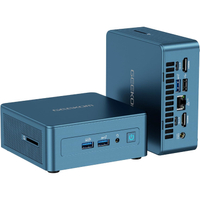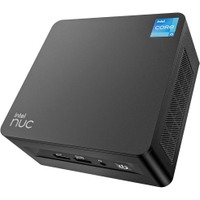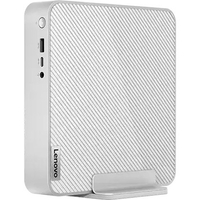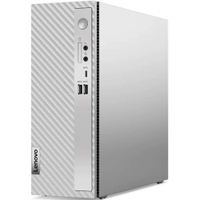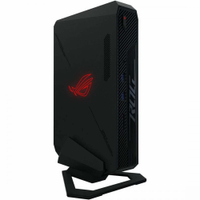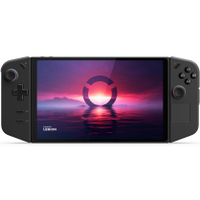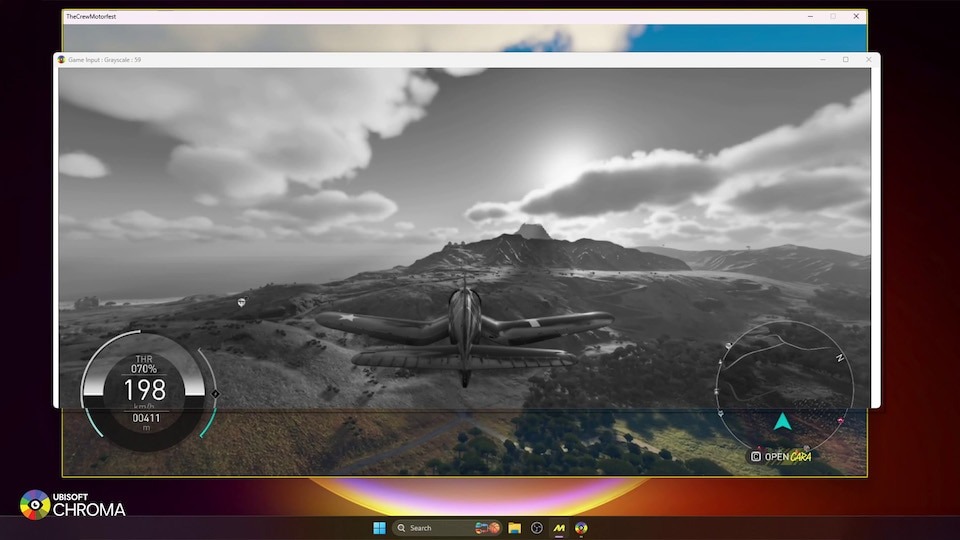Mini PCs are great low-cost computers for students
Laptops, desktops, and mini PCs can all be good options for students, but the right choice depends on how you plan to use these devices.
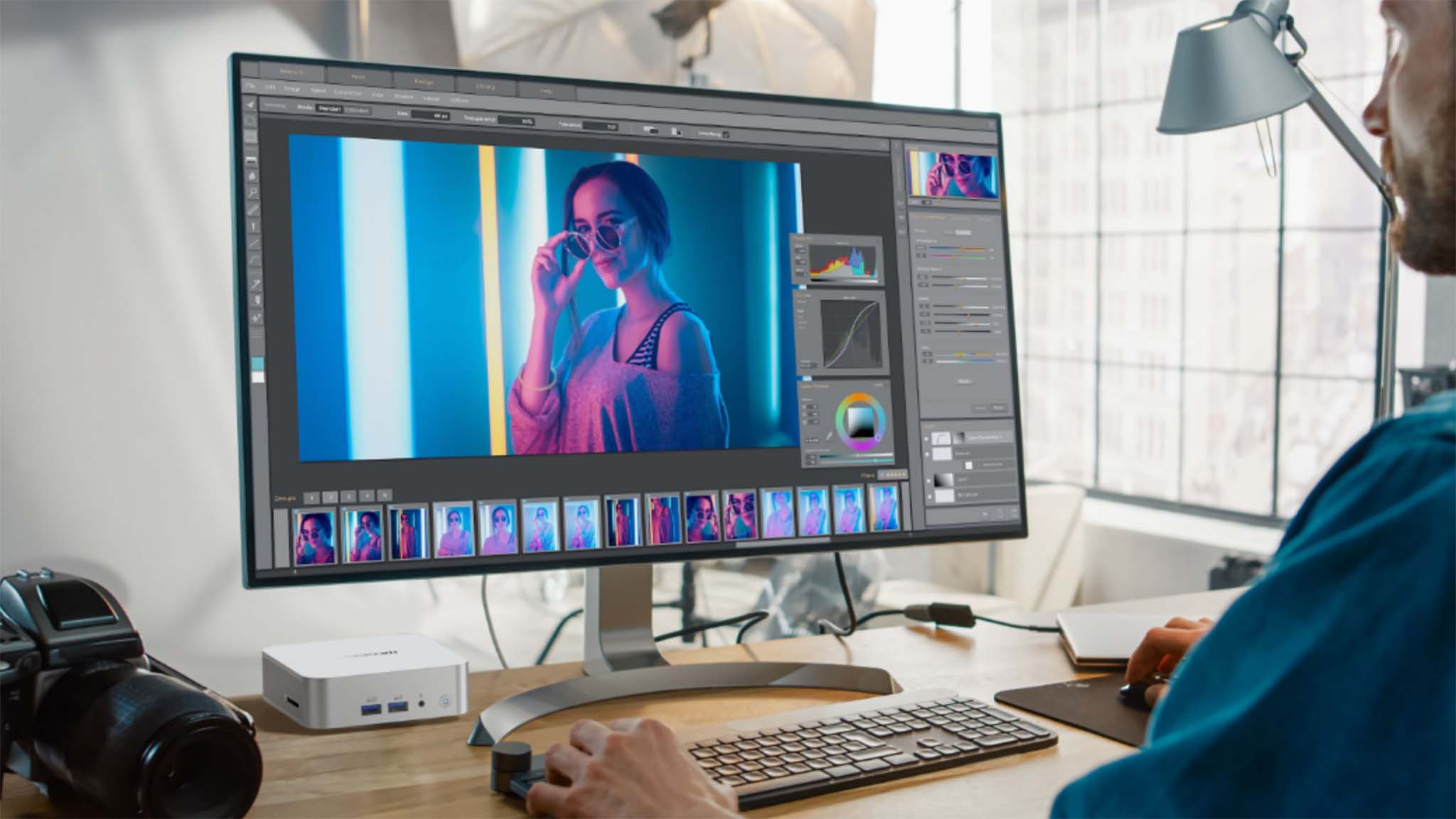
Mini PCs are compact and can be far more affordable alternatives to laptops and desktops. As such, they can be a fantastic option for budget-conscious students. However, you need to check and see if a mini PC will serve your needs best before buying one.
But what are the pros and cons of using a mini PC? Which mini PCs are best for students? Is a mini PC better than a laptop? What accessories do you need to purchase with them? And what other things do you need to keep in mind with mini PCs? I've answered all of this and more. Let's dive in.
Are mini PCs good for students?
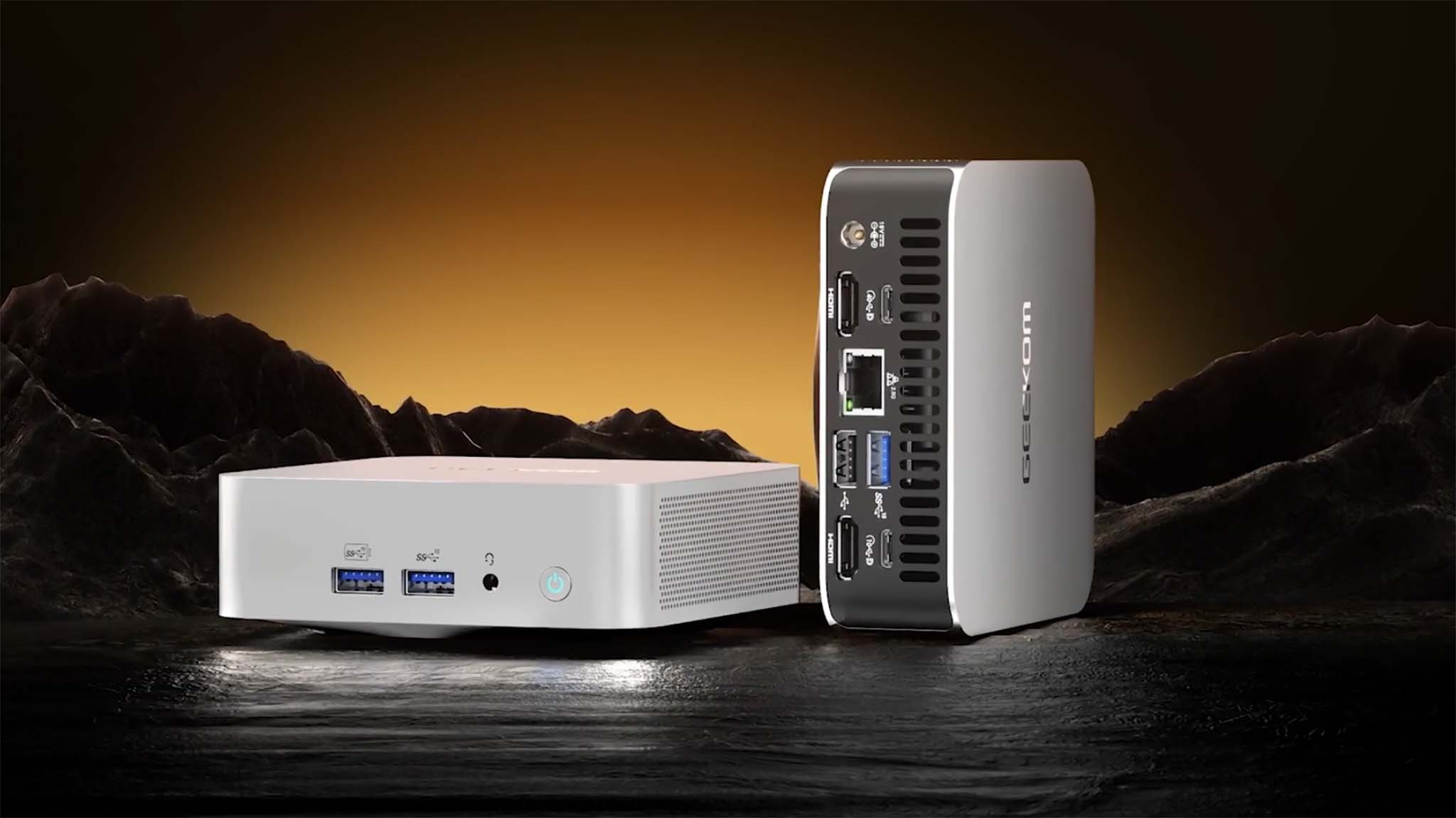
As with any piece of tech, a mini PC can be very useful if it is used in the right scenario. Let's start by answering some broader questions about mini PCs.
Is a mini PC worth buying?
Overall, mini PCs can be excellent little Windows 11 devices that can cost less than full-blown desktops and laptops. They don't take up as much room, either. As long as you go with a trustworthy brand, these small computers can be very powerful and handy. However, whether or not a mini PC is a good fit for you depends on what you intend to do with the device.
Are mini PCs good for students?
That really depends. If you simply want a small computer that is relatively powerful and doesn't take up your limited desk space, then a mini PC can be an excellent choice. Their small form factor also makes it easy to tote them around in a backpack if desired, and some will even have VESA mount support to plant them on the back of your monitor.
However, if you want to use a computer more easily on the go, a laptop is a better choice since it has a built-in monitor, keyboard, and touchpad.
Laptops vs mini PCs: Which is a better choice for students?
This really depends on your specific scenario. If you're attending classes in-person and are flitting from one location to another through the day, then a laptop might be a better fit for your on-the-go needs.
However, if you're taking online classes at home, you might be better served with a small and far more affordable mini PC. Similarly, if the majority of your classes take place in a computer lab, then it might be possible to send copies of your notes or schoolwork done in class to yourself (email, Google Drive, etc.) and then continue to access those files when you get back to your mini PC at home.
- RELATED: Best Windows laptops | Best mini PCs
When I was in college, I had precious little desk space, which meant I had to get creative with the tiny desk available to me. This was especially true in scenarios where I didn't want to intrude on a roommate's area. That's where mini PCs can be especially handy, since they're so compact. They're also far more affordable options for people who are attending school remotely via online classes.
Mini PCs takes up very little room, with some of them being as small as about four inches by four inches, although some can be decently larger. Still, their compact frames make it possible to mount them to the back of a monitor, lie them below a display, or even tuck them away out of site if needed. This, in turn, provides more space than a full desktop computer or a laptop might afford.
What's more, if you tend to do schoolwork on campus, you can tuck the mini PC into your backpack and then connect it to a monitor and keyboard provided at your school or college. Of course, this only works if you regularly have access to a computer lab or at least a monitor. If, however, you want the freedom to work anywhere, a laptop might serve you better.
Best mini PCs for students
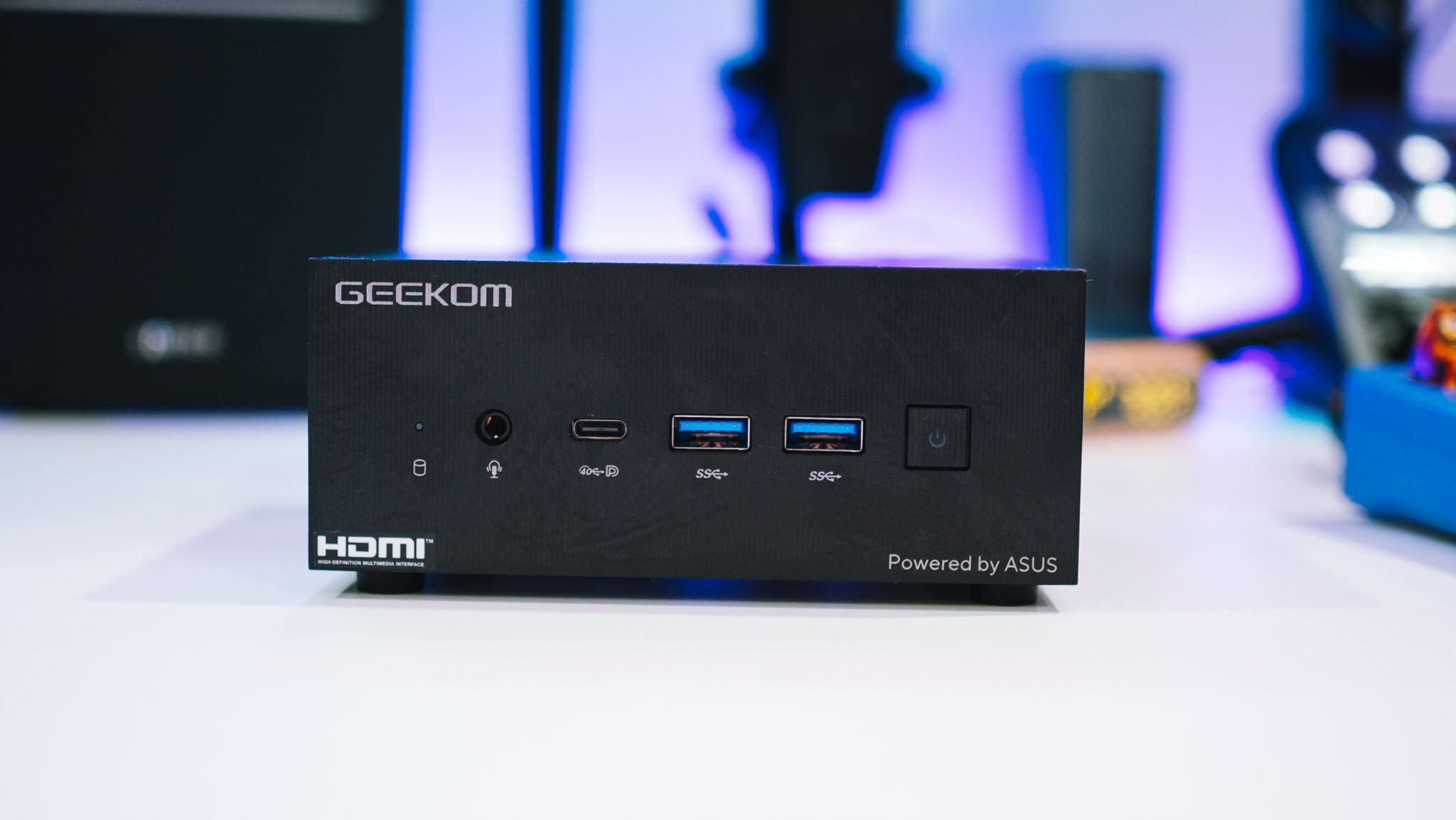
- ASUS NUC 13 Pro | $356.64 at Amazon
- Geekom IT13 | $599.00 at Amazon
- Lenovo IdeaCentre (Gen 8) | $849.99 at Best Buy
- Lenovo IdeaCentre 5 | $531.60 at Walmart
- ASUS ROG NUC 970 Gaming Mini PC | $2,199.00 at Walmart
- Lenovo Legion Go| $599.99 at Best Buy
One of the most attractive things about mini PCs is their low prices. You can find some relatively powerful mini PCs that cost a decent deal less than similar laptops or desktops. However, you shouldn't just buy the lowest-priced mini PC you come across, some can be packed with malicious software. Instead, you'll want to make sure you buy one of the best mini PCs from known brands, as these are safer to use.
Get the Windows Central Newsletter
All the latest news, reviews, and guides for Windows and Xbox diehards.
I previously wrote a PSA telling people to stay away from one mini PC company, which had sent me two mini PCs for review. During testing, I found that both of them had come with malware installed. You shouldn't have to do a clean Windows install on a brand-new device to make it safe to use. As such, you'll want to stick with trusted mini PCs companies like ASUS, Lenovo, and Geekom. Here are some of the best picks:
Geekom IT13 | $599.00 at Amazon
This configuration comes with a 13th Gen Intel Core i7-13620H, Intel UHD Graphics, Windows 11 Pro, 32GB RAM, and a 1TB SSD. A selection of ports makes it easier to connect accessories or different monitors — it can even deliver a max resolution of 8k at 30Hz if you have a compatible display. Wi-Fi 6E and Bluetooth 5.2 add to the mini PC's convenient connectivity.
Buy at: Amazon
Alternative configuration:
- i7-13700H, Iris Xe Graphics, 32GB RAM, 1TB SSD for $699.99 at Newegg
ASUS NUC 13 Pro | $689.00 at Amazon
ASUS took over NUC mini PCs, which were originally created by the popular chip manufacturer, Intel. This latest device features a 13th Gen Core i5-1340P processor with an Iris Xe graphics card. Depending on the configuration you choose, it can provide up to 32GB of RAM and up to a 1TB SSD. That's plenty of power for handling writing assignments, basic programs, surfing the web, and streaming shows. Not to mention, you can have a lot of space to save school files.
Lenovo IdeaCentre (Gen 8) | $849.99 at Best Buy
This small mini PC measures about 7.5 x 7.6 x 1.5 inches. Even so, it still offers a good range of ports, including one USB-C 3.2, one USB-A 2.0, and three USB-A 3.2, an HDMI 2.1, and DisplayPort 1.4. Component-wise, it boasts an Intel Core i5-13500H CPU, Intel Iris Xe graphics card, 8GB RAM, and a 256GB SSD. In all, it offers mid-grade processing power for easy multitasking between programs.
Alternative configuration:
- IdeaCentre (i5-13500H, 8GB RAM, and 256GB SSD): $629.99 at Best Buy
🔍Our expertise: Lenovo IdeaCentre Mini (Gen 8) review
Lenovo IdeaCentre 5 | $531.60 at Walmart
This mini PC is a bit on the larger side, but at roughly 10.8 x 11.9 x 3.9 inches, it's still much smaller than a computer tower. It comes with Windows 11 Home, an Intel Core i5-13400, 16GB RAM, and a 512GB SSD. Plus, there are a good number of ports for connecting various accessories or other connections. It's a bit on the older side and even has a VGA port to prove it, but the HDMI connection and processing power will make it easy to set up with just about any monitor so you can do basic schoolwork.
Buy at: Walmart | Newegg | Amazon
Alternative configurations:
- IdeaCentre 3 (i5-14400, 8GB RAM, 256GB SSD): $549.99 at Best Buy
- IdeaCentre 5 (i5-13400, 32GB RAM, 1TB SSD): $909.00 at Walmart
- IdeaCentre 3 (i7-12700K 32GB RAM, 1TB SSD): $1,086.00 at Newegg
ASUS ROG NUC 970 Gaming Mini PC | $2,199.00 at Walmart
With its smart 14th Gen Intel Core Ultra 9-185H CPU, NVIDIA GeForce RTX 4070 GPU, 32GB RAM, and 1TB SSD, this mini PC is more than capable of handling graphically intensive software, creative programs, or video games. You can set it upright on the included stand or have it lay horizontally beneath your monitor. There are also several ports, which make it easy to connect the right kind of monitor or accessory.
Buy at: Walmart | Amazon | Newegg
🔍Our expertise: ASUS ROG NUC 970 review
Lenovo Legion Go (Z1 Extreme, 512GB SSD) | $599.99 at Best Buy
Although it's technically a gaming handheld, the Legion Go comes with Windows 11 Home installed on it. If you pop out the kickstand and connect a wireless keyboard and mouse to it, you can use it just like a computer to run various programs and video games. The relatively large 8.8-inch display is easier to see than the typical 7-inch displays on most other gaming handhelds. This configuration features an AMD Ryzen Z1 Extreme processor, 16GB RAM, and a 512GB SSD.
🔍Our expertise: Legion Go review
Which mini PC is best for students?
This really depends on what kind of work you need the mini PC to do. Beware that there are many low-priced mini PCs on the market which include malware on their devices, so it's best to stick with companies you can trust. Some mini PC companies you can trust are Lenovo, ASUS, or Geekom.
If you simply need a basic device for writing, surfing the web, and streaming shows, then an ASUS NUC 13 Pro might be the perfect choice. It's rather inexpensive, but still comes with useful processors and storage capacities in various configuration options.
If you need something with a bit more oomph, Lenovo and Geekom both have a good range of IdeaCentre mini PCs. Choose one with mid-grade to high-end processors, and you'll be set.
Finally, if you need a relatively powerful mini PC for graphic design, 3D modeling, or other more intensive programs, you might want to consider the larger ASUS ROG NUC 970 gaming mini PC. It's expensive, but it has a small form factor compared to gaming desktops and laptops.
As surprising as it may seem, if you want a really small gaming device, a gaming handheld like an ROG Ally or Legion Go can also be a good alternative for students.
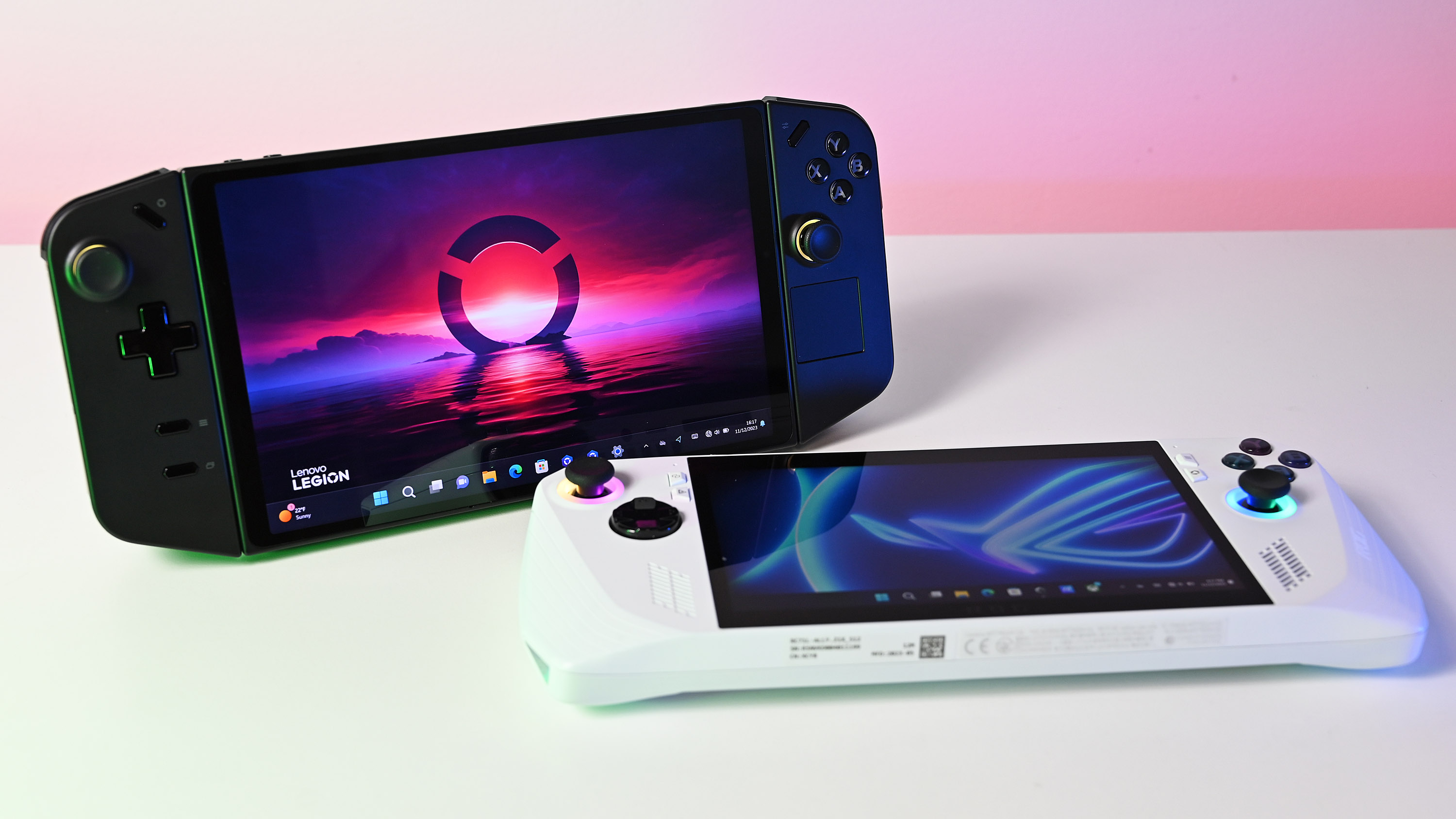
Can a gaming handheld be used for school?
Yes, depending on the situation. If you want an inexpensive gaming laptop or smaller mini PC that's capable of gaming, you might want to consider a Windows gaming handheld. These devices come with Windows 11 installed on them and can run any program a laptop can. Moreover, they tend to have higher graphical abilities than most mini PCs.
The ASUS ROG Ally is the Windows gaming handheld leader, but the Lenovo Legion Go is a better choice if you want the device to actually function like a computer rather than a gaming system.
The 8.8-inch display is larger and easier to view than the Ally's 7-inch display. Plus, the built-in kickstand on the Legion Go, means it can be propped up on a desk with a keyboard and mouse more easily splayed in front of it. The ROG Ally, in comparison, doesn't have a kickstand, so you'll have to prop it up or purchase a case that has one.
Additionally, you can connect a gaming handheld to a monitor using a docking station (such as this one from my JSAUX 6-in-1-Multifunctional Docking Station review) and then use the device like a normal computer that way too. For more ideas, you can check out our list of the best Legion Go accessories or our list of the best ROG Ally accessories.
Best Mini PC accessories
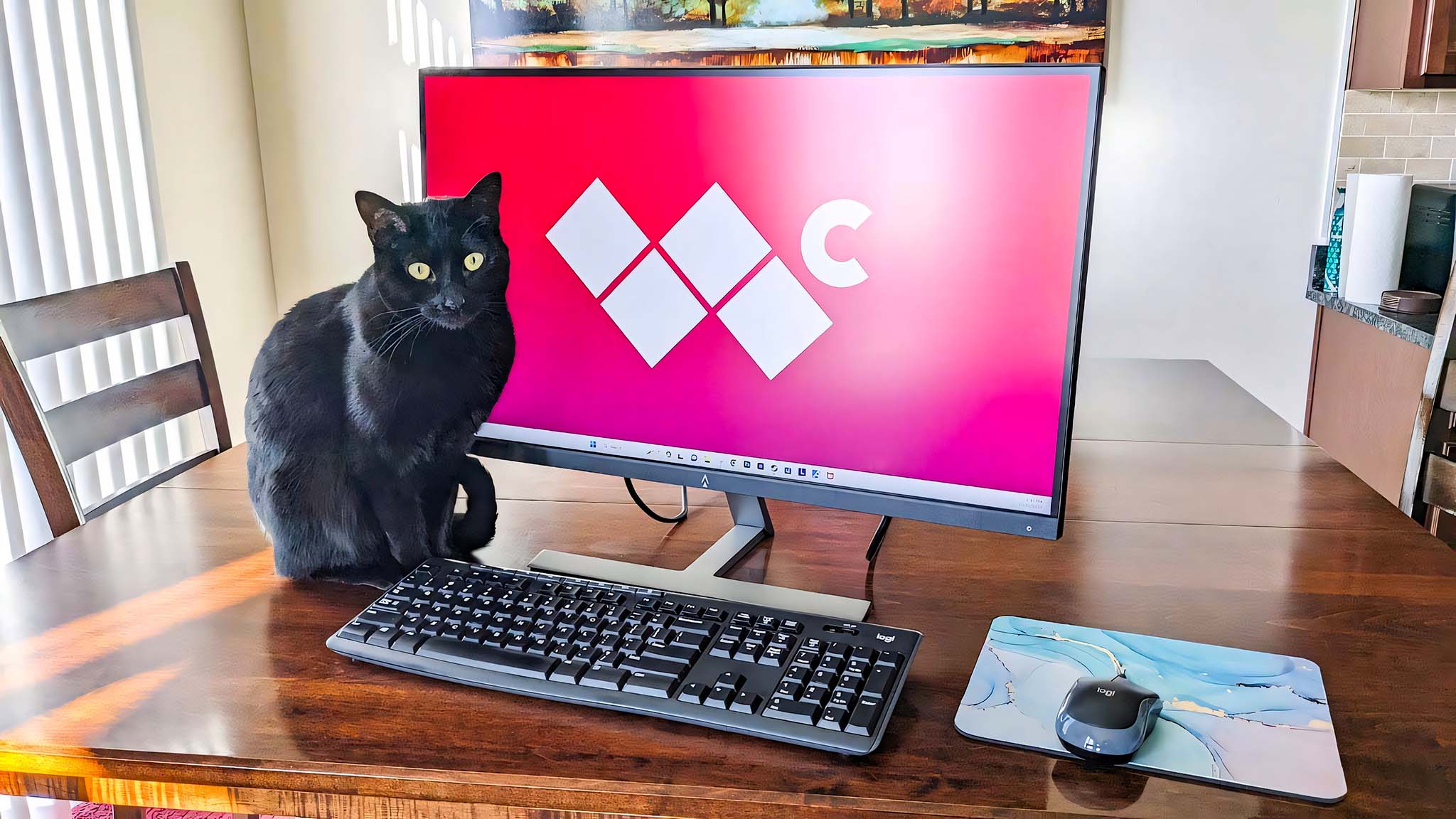
Part of what makes a mini PC so inexpensive is that it doesn't come with essential computer accessories. If you plan carefully, you can get the best PC accessories at lower prices, which can still make a mini PC setup far cheaper than a laptop or desktop setup. These are the basic accessories you'll want to grab:
- Logitech MK270 Wireless Keyboard and Mouse | $22.99 at Amazon
- Corgi Butt Mouse Pad with Wrist Rest | $14.99 at Amazon
- HP 24mg FHD Computer Monitor | $149.00 at Amazon
- Anker Soundcore 2 Bluetooth Speaker | $27.99 at Amazon
- HyperX Cloud III Wired Headset | $70.99 at Best Buy
- JSAUX FlipGo 16" Dual Portable Monitor | $599.00 at Amazon
- Keyboard: It's pretty hard to use a computer of any kind without something to write with. Check out our list of the best keyboards to find some really good suggestions. This Logitech keyboard and mouse combo only costs $22.99 at Amazon.
- Mouse: Computer mice can be extremely cheap, with some of the lowest-costing and reliable devices coming from Logitech. I personally love using the M325 Wireless mouse, which sells for $14.99 at Best Buy. For more ideas, you might want to look at our best PC mouse round-up.
- Mousepad: These rubbery accessories allow a computer mouse to work more effectively, and they can be extremely cheap. But if you want a bit more flare, you could always go with something more exciting, like this adorable Corgi Butt Wrist Rest mousepad I use. It sells for $14.99 at Amazon.
- Monitor: The nice thing about using a mini PC is that most of them come with the HDMI or DisplayPort cables needed to connect to a monitor. As such, you can choose whatever caliber display works with your tiny computer and your price range. To get some ideas, you can look at our list of the best computer monitors.
- Speakers (optional): Some monitors come with speakers, while others don't. If yours is the latter, you'll want to consider grabbing external speakers. There are some very inexpensive Bluetooth options out there, like this Anker Soundcore 2, which I use with my NUC 970 Gaming Mini PC. It sells for $39.99 at Amazon.
- Headset (optional): If you have roommates and want to keep the noise level down or else you like gaming in your free time, then a PC headset might be a better pick over computer speakers. The best PC gaming headsets offer really good sounds quality, a comfortable fit, and excellent microphones so you can communicate with your teacher during virtual classes or talk better with teammates during game sessions. You can look at my HyperX Cloud III review to see one of my favorite options. The wired version sells for $70.99 at Best Buy, while the wireless version sells for $129.99 at Best Buy.
Advantages and disadvantages of mini PCs
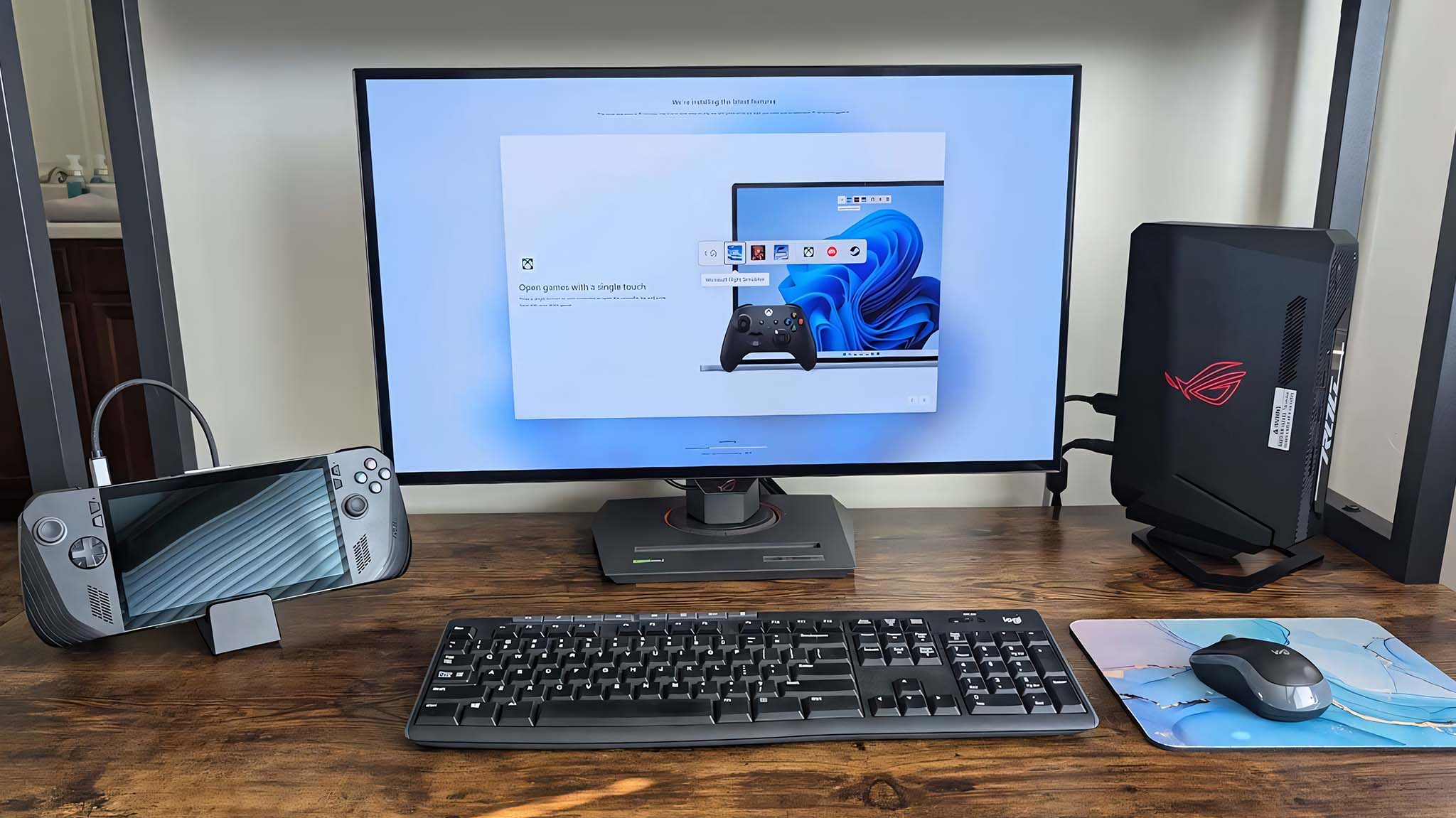
What is the point of a mini PC?
Your average mini PC is designed to be inexpensive and hardly take up any room while still providing enough power for basic computing tasks. This includes, browsing the internet, typing in word documents, running common programs, streaming shows, playing music, and more. You will need to seek out a specialty mini PC if you want one that can handle graphically demanding tasks like video games or intensive creative software.
What is the disadvantage of a mini PC?
While some specialty mini PCs can have high-end specs, the majority of Mini PCs aren't super powerful. They usually cost less than similarly configured laptops and PCs, but might not offer as many ports. Additionally, while mini PCs are small enough to throw into a backpack or bag, they cannot be set up as easily on the go like a laptop can. However, if you also travel with cables, a keyboard, a mouse, and a monitor, then you can use it on the go if there's good desk space. But, you'll have to purchase all of these accessories in addition to your mini PC.
Are mini PCs bad for gaming?
That depends on the configuration. The majority of mini PCs offer very basic integrated graphics cards and won't be able to handle intensive video game programs. However, there are also specialty gaming mini PCs like the ROG NUC 970, which come with high-end CPUs and RTX 40-Series GPUs. These mini PCs can easily handle modern gaming, but they can be rather expensive. Don't forget though, even a lower powered mini PC will be able to utilize cloud gaming, so long as you have a strong enough connection.
What are the best gaming mini PCs?
Right now, arguably, the best gaming mini PC is the ASUS ROG NUC 970. It features an AI-boosted Intel Core Ultra 9-185H processor alongside a very powerful NVIDIA GeForce RTX 4070 graphics card. To handle faster game loading and large libraries, it also comes with 32GB RAM and a 1TB SSD.
Honestly, if you want a mini PC for gaming, you might want to consider a Windows gaming handheld. The ROG Ally and Legion Go, in particular, are very powerful handheld devices that have Windows 11 installed on them right out of the box. If you connect a keyboard and mouse to them via a docking station, they can be used just like a normal computer.
Can you connect a mini PC to a laptop?
It depends on what you mean by this. Some connection methods will allow you to use your mini PC on a laptop—using programs like Chrome Remote Desktop with an internet connection, for instance. However, most laptops do not have the internals to display imagery from other devices using HDMI or USB connections.
Is a mini PC as good as a normal PC, desktop, or laptop?
Yes, but this depends on the computer configurations being compared. Some mini PCs are just a step up from a Chromebook. This means that they can run programs on their own and save files locally rather than relying on the internet for such tasks, but shouldn't be relied on for really strenuous processes.
Then there are some more powerful configurations, similar to desktops and laptops, that can keep up with mid-level programs and software. Even then, these typically don't have the best graphics processors on them, so they're mostly comparable to business laptops.
Finally, there are only a few mini PCs that offer high-end processors and graphics cards to handle the latest video games, rendering programs and creative software usually associated with bulky desktops and gaming laptops.
Mini PCs are great for school as long as you find one that fits your needs

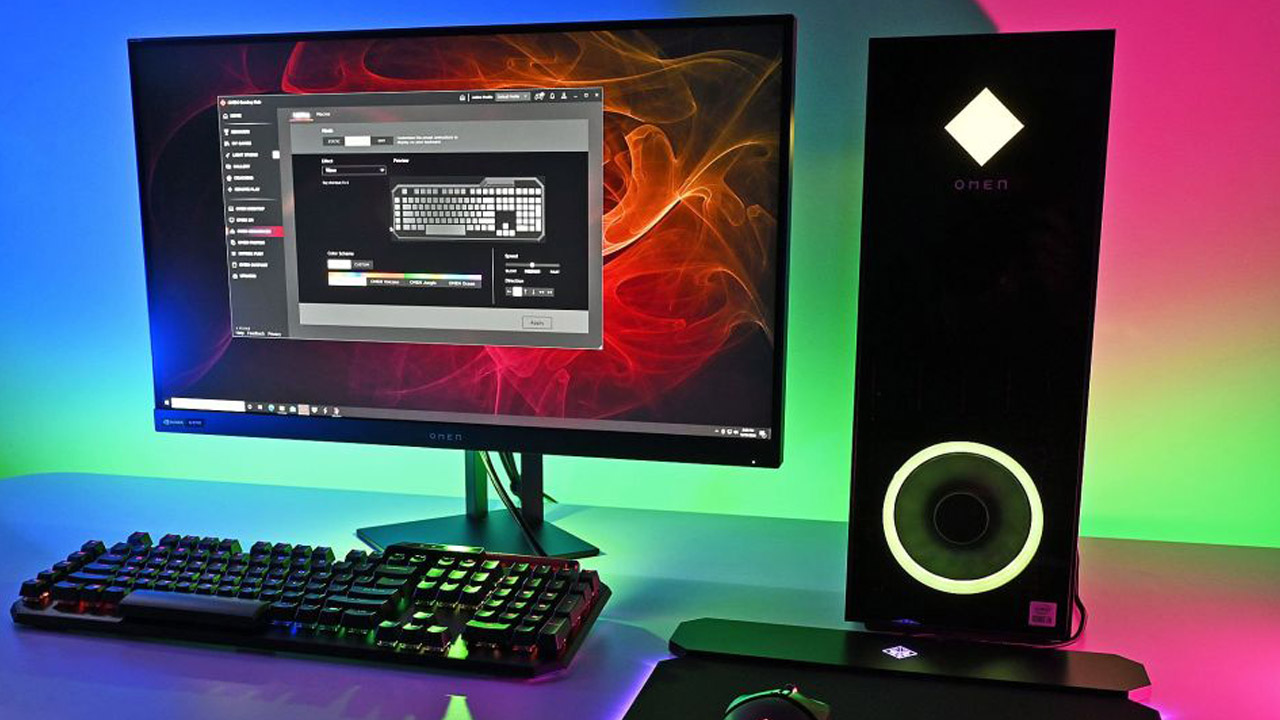
• Best PC headsets
• Best Xbox accessories
• Best small gaming PCs
• Best gaming laptops in 2024
• Best gaming handhelds 2024
Obviously, each student is going to have different needs when it comes to computers. Within a college, an English major might only need a basic device for typing up essays and searching the web, while a graphic design major or engineering major will probably want a computer with a more potent graphics processor for handling rendering software. In my own time at school, I also wanted a device that could handle gaming during the rare moments that I actually had free time.
A mini PC can be a great alternative to a laptop or desktop, depending on your scholarly needs. If you're attending online classes, you'll appreciate the lower cost of a mini PC that won't take up a ton of space in your room. Alternatively, if your classes largely take place in computer labs, you can type up notes on the school computer and then send them to yourself online and continue to access them from your mini PC.
Basically, consider your school situation and then decide if a mini PC fits within your scenario. If it does, it's very possible that you can find a far more affordable mini PC rather than going for a more expensive laptop or desktop.

Self-professed gaming geek Rebecca Spear is one of Windows Central's editors and reviewers with a focus on gaming handhelds, mini PCs, PC gaming, and laptops. When she isn't checking out the latest games on Xbox Game Pass, PC, ROG Ally, or Steam Deck; she can be found digital drawing with a Wacom tablet. She's written thousands of articles with everything from editorials, reviews, previews, features, previews, and hardware reviews over the last few years. If you need information about anything gaming-related, her articles can help you out. She also loves testing game accessories and any new tech on the market. You can follow her @rrspear on X (formerly Twitter).
